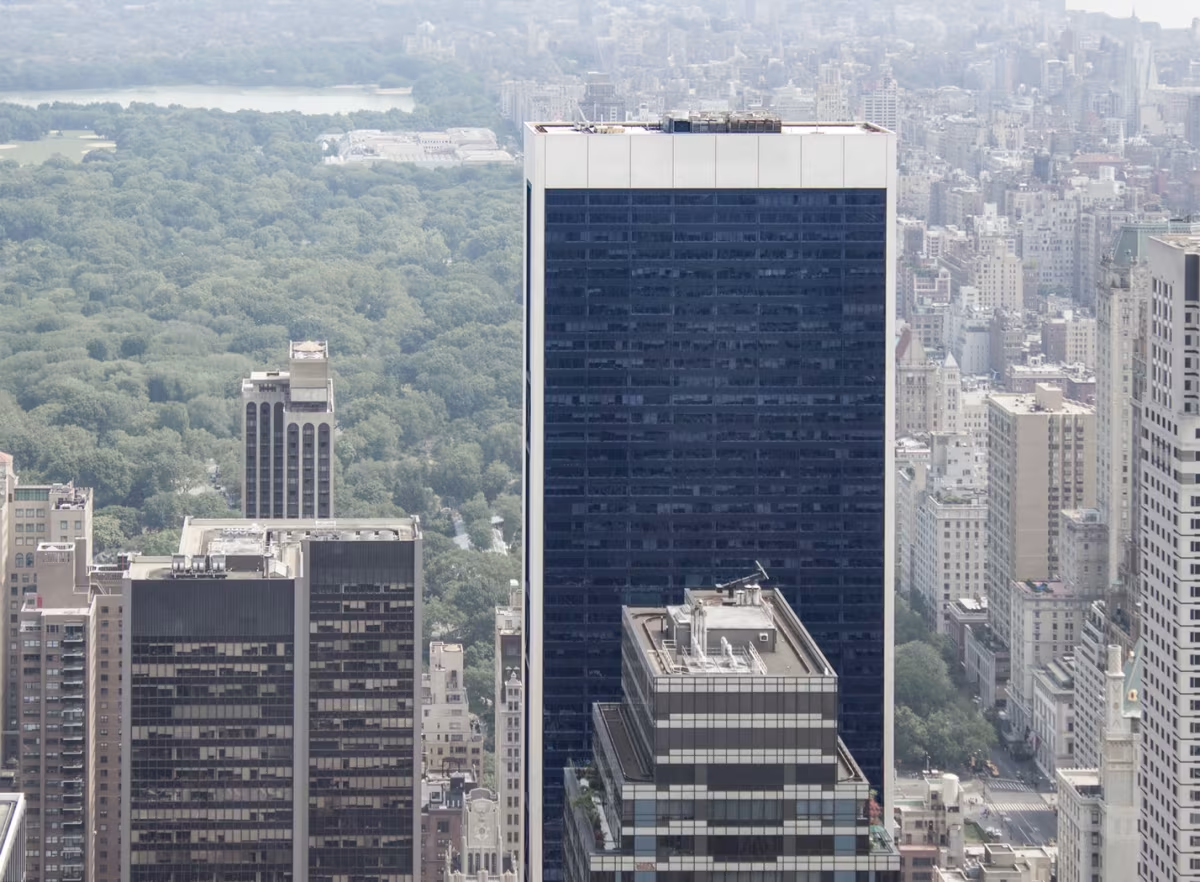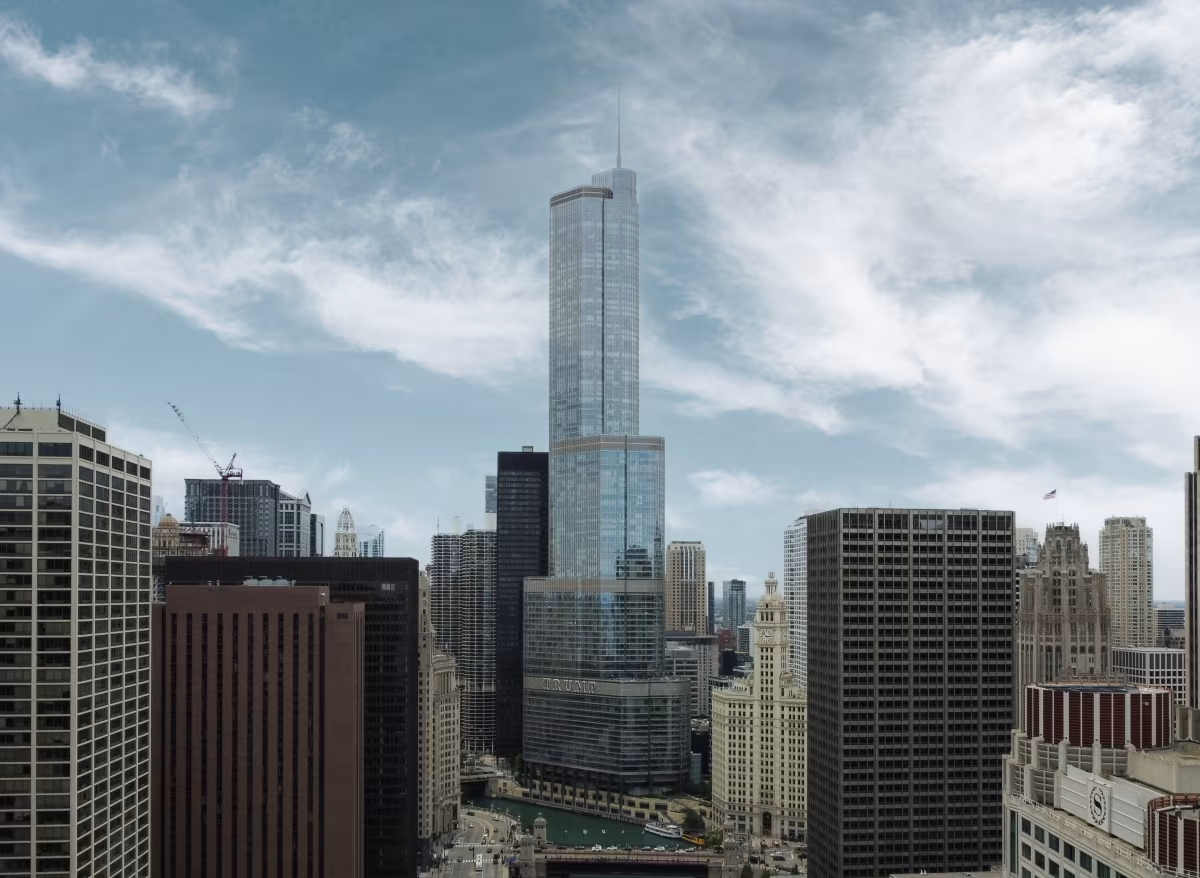Solow Building vs Trump International Hotel and Tower


Comparing the Solow Building and the Trump International Hotel and Tower is compelling because they were both designed by Skidmore, Owings & Merrill, yet they stand in different cities (New York, NY and Chicago, IL), and were completed over two decades apart.
What this will allow us to see, is how the same firm's approach adapted to different places in different periods of time.
Height & Size
The Trump International Hotel and Tower is clearly the larger tower of the two, both in terms of height and number of floors. It rises to 1181ft (360m) with 92 floors above ground, while the Solow Building reaches 673ft (205m) with 49 floors above ground.
Despite being taller and having more floors, Trump International Hotel and Tower has less total built-up area than Solow Building.
Of course, each project may have faced different briefs or regulatory constraints, which we don't really know about and could also explain the outcome.
Architectural Style
The Solow Building was designed in the Modern style, while the Trump International Hotel and Tower reflects the principles of Contemporary.
The Solow Building represents a late expression of the Modern, a style already in decline in 1974 when it was completed. By contrast, the Trump International Hotel and Tower followed the then mainstream Contemporary, embodying the dominant architectural direction of its time.
With 35 years between them, the comparison also reflects how quickly architectural priorities can shift from one dominant language to another.
Uses
The Trump International Hotel and Tower follows a mixed-use model, combining hotel, residential and commercial. In contrast, the Solow Building has remained primarily commercial.
The Trump International Hotel and Tower incorporates a 5-star hotel with 339 rooms. More information is available at the official website.
The Trump International Hotel and Tower offers 486 residential units.
The Trump International Hotel and Tower also provides 960 parking spaces.
Structure & Facade
The two towers rely on different structural systems, reflecting distinct engineering strategies.
The Solow Building uses a Trussed Frame structural system, which uses diagonal bracing in addition to beams and columns for stability, while the Trump International Hotel and Tower uses a Frame system, that relies on a regular grid of columns and beams to sustain its weight.
Yet, when it comes to their facade, they both employed the same solution, a Curtain Wall facade.
A curtain wall is a non-load-bearing facade hung from the structural frame. It is anchored to floor slabs and transfers only its own weight and wind loads, allowing for sleek, glassy exteriors.
| Solow Building | Trump International Hotel and Tower | |
|---|---|---|
| Skidmore, Owings & Merrill | Architect | Skidmore, Owings & Merrill |
| 1968 | Construction Started | 2005 |
| 1974 | Year Completed | 2009 |
| Modern | Architectural Style | Contemporary |
| Commercial | Current Use | Mixed |
| 49 | Floors Above Ground | 92 |
| 1 | Floors Below Ground | 5 |
| 205 m | Height (m) | 360 m |
| 143411 | Built-up Area (m²) | 241.548 |
| 34 | Number of Elevators | 27 |
| Trussed Frame | Structure Type | Frame |
| Steel | Vertical Structure Material | Reinforced Concrete |
| Concrete And Steel | Horizontal Structure Material | Reinforced Concrete |
| No | Facade Structural? | No |
| Glass, Marble, Aluminium | Main Facade Material | Glass And Stainless Steel Panels |
| Solow Construction Co. | Main Contractor | Bovis Lend Lease |
| Solow Development Corporation | Developer | Donald Trump |
| Cosentini Associates | MEP Engineer | WMA Consulting Engineers Ltd |
| Weidlinger Associates | Structural Engineer | William F. Baker |
| NY | State | IL |
| New York | City | Chicago |
| 9 West 57th Street | Address | 401 N. Wabash Ave. |